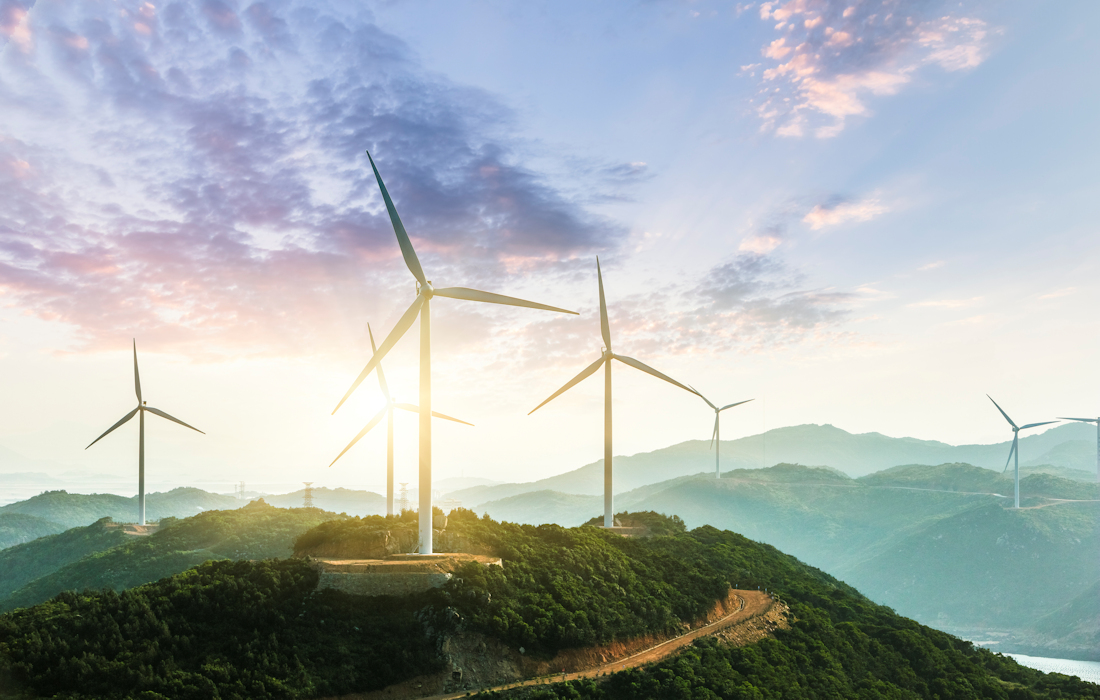Dr Jeff Hardy, Sr Research Fellow, Grantham Institute for Climate Change, Imperial College London
13 January 2022
In the run up the Christmas, the Deputy Climate Change Minister Lee Waters led a Welsh Government Deep Dive into Renewable Energy. The purpose of the exercise was to identify the opportunities where renewable generation in Wales could be significantly scaled up, whilst considering the barriers and the steps required to overcome them. I was a member of the core experts who helped to inform this report.
This was a rapid, intense and fun process to be part of. It started in late October and published its findings on the 8th of December 2021 – so a very quick turnaround. During that period we crammed in ten expert group meetings, including three wider round table events. It was expertly chaired by Lee Waters, who was relentless in his pursuit of specific, meaningful and deliverable recommendations. I have utter respect for the team of civil servants responsible for capturing the discussions as I could barely keep up.
The process involved discussions around fixed topic agendas, for example the consenting and licensing regime for renewables, with stimulus papers prepared by Welsh Government team. For topic areas where wider discussion was required, expert sub-groups were formed. Together with Mike Colechin (and thankfully assisted by Anna Watson!), I co-led a sub-group exploring demand flexibility. For those that know Mike, Anna and me, you will be unsurprised to know we used Mural to gather information from our sub-group experts. Feeding back from sub-groups was a good lesson in being as specific and tangible as possible – there was a strict ‘no fluff’ policy.
The full set of 21 recommendations, which were drawn from what must have been over a hundred individual recommendations, were published on the 8th of December. The recommendations fall into seven categories:
- The first is strategy, and most critically a vision, which states: “Our Vision is for Wales to generate renewable energy to at least fully meet our energy needs and utilise surplus generation to tackle the nature and climate emergencies. We will accelerate actions to reduce energy demand and maximise local ownership retaining economic and social benefits in Wales.”
The “at least fully meet our energy needs” aspect is particularly ambitious. It entails renewables meeting all Welsh energy demands across electricity, heat and transport.
- The second is grid. The push for a Wales Energy System Architect is particularly interesting as its role, on and offshore, is to deliver a truly smart and fair grid and to employ a whole energy system approach.
- The third is consenting, licensing and supporting advisory arrangements. This might sound dry, but is actually rather exciting. It’s about how you align all those processes required to develop renewables so that they are as streamlined and integrated as possible, without introducing issues, such as reduced environmental protection.
- The fourth is finance. The first recommendation is particularly interesting to EnergyREV, especially our colleagues in Professor Jan Webb’s work package on business and financial practices: “We will set up an expert group to explore ways of drawing down additional investment in renewable energy generation in Wales. We will prioritise local and community ownership to maximise local economic and social value.”
- The fifth is opportunities to scale up community and local energy in Wales. This includes a range of recommendations to support community and local energy development and (shared) ownership. It includes exciting proposals on rights for community enterprises to projects on public estates.
- The sixth is maximising economic and social value in Wales. This seeks to maximise the value to Wales of on- and offshore renewables. It also commits to a net zero skills action plan by Spring 2022. One of the recommendations for the demand flexibility subgroup features in recommendation 20, regarding maximising the installation of renewables, flexibility and storage at business and industry sites.
- The final category is innovation. It calls for Ofgem to develop a Welsh regulatory derogation to enable energy business model innovation in support of the wider recommendations of the Renewable Energy Deep Dive. This is quite exciting (to me!) as it implies a regional, rather than project-by-project regulatory innovation zone. (Our subgroup also suggested it.) It focuses on wider co-benefits, whole system value and better protecting the interests of Welsh citizens.
Looking back at the process, I’m flabbergasted that such a coherent set of recommendation emerged given the pace and multitude of stakeholders involved. Credit to Lee Waters and the Welsh Government team for delivering on this. It’s not quite over as a process, the expert group has been asked to keep an eye on delivery over the coming year and a subgroup on finance and procurement has been invited to be formed.
I’ll report back on progress at some point in 2022.
